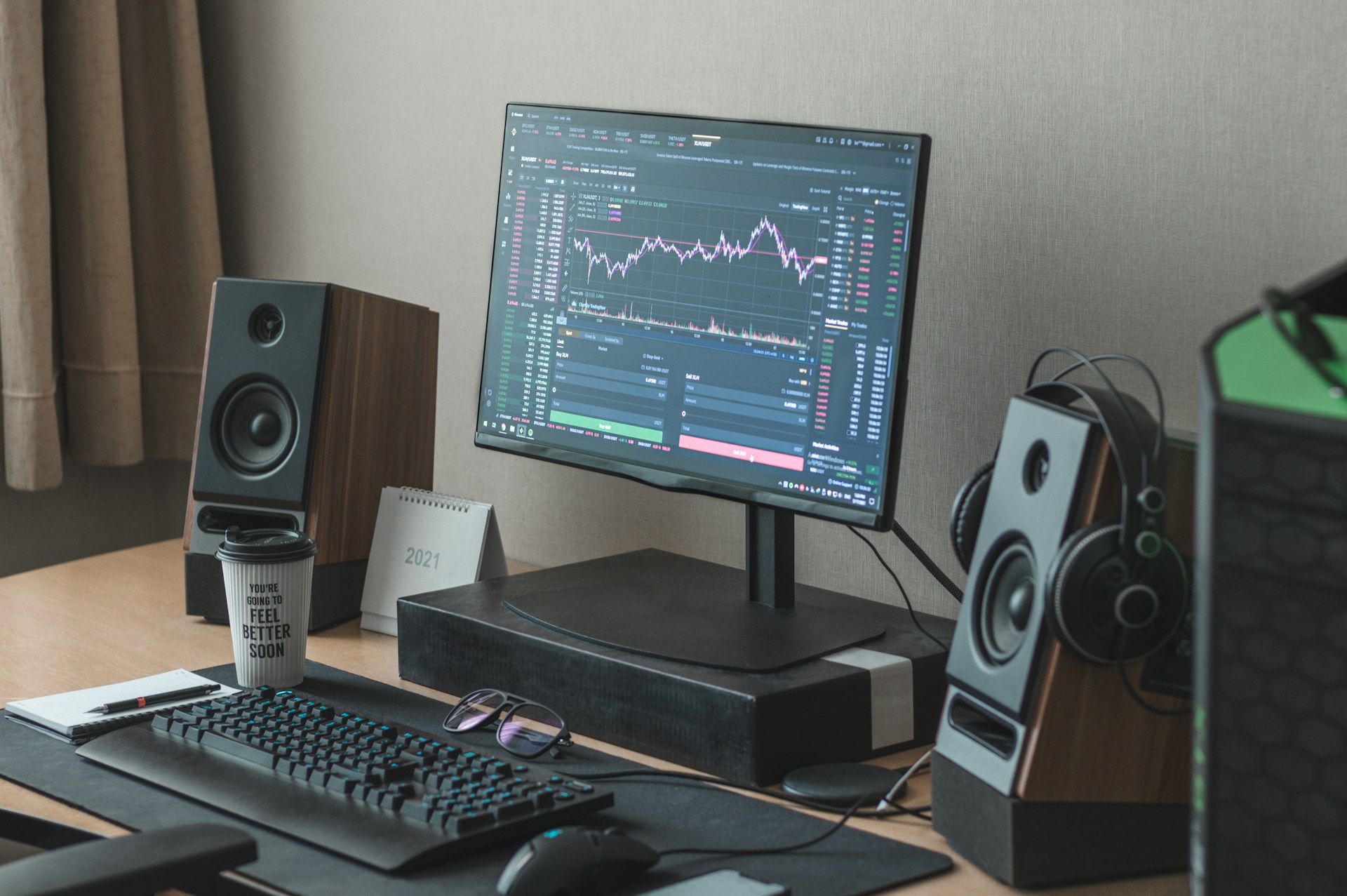European shares tumbled on Monday during the final full trading session of 2024, echoing Wall Street’s downward trend as persistently high government bond yields drove investors out of equities. Despite a generally strong year for many regional markets, concerns about inflationary pressures under the incoming Trump presidency and uncertainties surrounding global monetary policy have left investors wary.
Bond Yields Weigh on European Markets
The pan-European STOXX 600 index declined 0.6%, with technology and healthcare sectors leading the losses. Germany’s DAX fell 0.4% on its last trading day of the year, though it remains on track for a 19% annual surge, outperforming other major European indices. Conversely, France’s CAC 40 is set to close the year with a 2.5% drop, impacted by political unrest and fiscal challenges.
Bond yields have been a critical factor in market fluctuations, with the 10-year German bund yield trading near its highest level since mid-November. These yields have mirrored the rise in U.S. Treasury rates, which have unsettled global equities. Matt Britzman, senior equity researcher at Hargreaves Lansdown, noted, “The tech-driven surge in the U.S. markets highlights investor optimism, but climbing yields are a stark reminder of lingering monetary policy concerns.”
Sector Performance and Notable Moves
Among European sectors, banks have been the top performers in 2024, benefiting from higher interest rates, while food and beverages, along with automobiles, have struggled. Siemens Healthineers dipped 1.7% after Siemens AG announced a review of its majority stake in the medical technology unit. Meanwhile, BayWa surged 17% following a restructuring agreement with its key shareholders and financiers, signaling potential growth in agricultural trade and logistics.
Across the Atlantic, Wall Street mirrored Europe’s struggles as a slide in tech giants such as Amazon and Microsoft pushed the S&P 500 to a one-week low. While the U.S. markets have gained significantly in 2024—boosted by artificial intelligence and Fed policy—the recent pullback highlights the fragile balance between growth optimism and interest rate concerns.
Netizens React to Market Volatility
Investors and commentators took to social media to express their views on the turbulent markets. User @EquityHawk commented, “Bond yields are the silent killer of this rally. Tech stocks are no longer the safe haven they seemed.” Another user, @EUStockGuru, observed, “European shares are struggling under political and fiscal uncertainty. Germany leads, but France lags behind.”
Some netizens focused on the broader implications of high valuations. “2024 was the year of sky-high valuations. Now reality is sinking in,” wrote @MarketRealist. Others were more optimistic, with @GrowthOpportunist tweeting, “Market dips always create buying opportunities. Banks are still a strong play in Europe.”
Concern over global monetary policy resonated with user @BondMarketWatch, who posted, “Central banks hold the key to 2025. Yields are dictating the story for now.” Meanwhile, @ValueInvestorEU offered a contrarian view, stating, “Volatility is healthy. It’s a reminder to stay diversified and patient.”
Looking Ahead
As markets prepare to close 2024, investors face significant challenges heading into the new year. The trajectory of bond yields, the Trump administration’s fiscal policies, and geopolitical uncertainty will likely shape market performance in 2025. While European shares have shown resilience in specific sectors, broader concerns about valuation and inflation remain key risks.



 The strikes on Iran show why quitting oil is more important than ever
The strikes on Iran show why quitting oil is more important than ever  Trump Warns Iran as Gulf Conflict Disrupts Oil Markets and Global Trade
Trump Warns Iran as Gulf Conflict Disrupts Oil Markets and Global Trade  European Stocks Slide as Middle East War Fears and Rising Oil Prices Shake Markets
European Stocks Slide as Middle East War Fears and Rising Oil Prices Shake Markets  Japan Signals Possible Currency Intervention as Yen Slides to 157.3 Amid Middle East Tensions
Japan Signals Possible Currency Intervention as Yen Slides to 157.3 Amid Middle East Tensions  Australian Job Advertisements Hit 16-Month High as Labour Market Stays Resilient
Australian Job Advertisements Hit 16-Month High as Labour Market Stays Resilient  Gold Prices Surge Over 2% After U.S.-Israel Strikes on Iran Spark Safe-Haven Demand
Gold Prices Surge Over 2% After U.S.-Israel Strikes on Iran Spark Safe-Haven Demand  U.S.-Israel War on Iran Escalates as Gulf Conflict Disrupts Oil, Air Travel and Regional Security
U.S.-Israel War on Iran Escalates as Gulf Conflict Disrupts Oil, Air Travel and Regional Security  Asian Currencies Slide as US-Israel Strikes on Iran Trigger Oil Surge and Risk-Off Rally
Asian Currencies Slide as US-Israel Strikes on Iran Trigger Oil Surge and Risk-Off Rally  Japan Manufacturing PMI Jumps to Four-Year High as Global Demand Strengthens
Japan Manufacturing PMI Jumps to Four-Year High as Global Demand Strengthens  RBA Signals Possible March Rate Hike as Energy Risks Threaten Inflation Outlook
RBA Signals Possible March Rate Hike as Energy Risks Threaten Inflation Outlook  S&P Global Warns of Potential Downgrade for Berkshire’s PacifiCorp Over Oregon Wildfire Liabilities
S&P Global Warns of Potential Downgrade for Berkshire’s PacifiCorp Over Oregon Wildfire Liabilities  Bank of Japan Signals Further Interest Rate Hikes as Inflation Trends Toward 2% Target
Bank of Japan Signals Further Interest Rate Hikes as Inflation Trends Toward 2% Target  Strait of Hormuz Oil and LNG Shipments Disrupted After U.S.-Israel Strikes on Iran
Strait of Hormuz Oil and LNG Shipments Disrupted After U.S.-Israel Strikes on Iran  Dollar Rallies as Middle East Conflict Weighs on Yen and Euro, Lifts Safe-Haven Demand
Dollar Rallies as Middle East Conflict Weighs on Yen and Euro, Lifts Safe-Haven Demand  Global Markets Reel as Euro Falls, Swiss Franc Surges and Oil Prices Spike After U.S.-Israel Strike on Iran
Global Markets Reel as Euro Falls, Swiss Franc Surges and Oil Prices Spike After U.S.-Israel Strike on Iran  Wall Street Futures Tumble as U.S.-Iran Conflict Escalates and Oil Prices Surge
Wall Street Futures Tumble as U.S.-Iran Conflict Escalates and Oil Prices Surge  Rachel Reeves Signals Fiscal Discipline in UK Budget Update Amid Middle East Tensions
Rachel Reeves Signals Fiscal Discipline in UK Budget Update Amid Middle East Tensions 






























